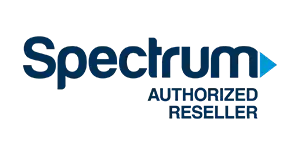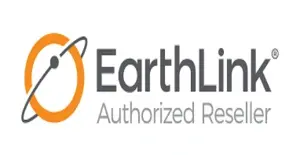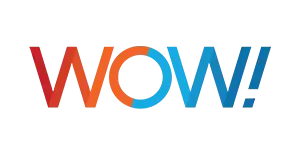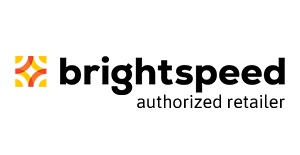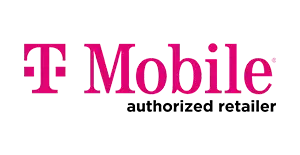Top Internet Providers in Columbus, Ohio
Spectrum
Centurylink
Earthlink
AT&T
HughesNet
WOW!
BrightSpeed
T Mobile
Breezeline
The Ultimate Guide to Internet Service Providers in Columbus, Ohio
As Ohio's bustling state capital and most populous city, Columbus is a hub of innovation, education, and culture. Home to over 900,000 residents, a world-class university (The Ohio State University), and a rapidly growing tech sector, the demand for fast, reliable, and affordable internet is higher than ever. Whether you're a student cramming for finals, a professional working from home, a family streaming on multiple devices, or a competitive gamer, having the right internet connection is non-negotiable.
Navigating the myriad of Internet Service Providers (ISPs) in Columbus can be daunting. This guide is designed to cut through the noise, offering a detailed, neighborhood-aware breakdown of your options. We'll explore fiber, cable, DSL, and fixed wireless providers, compare speeds and prices, and help you determine exactly what kind of service you need to power your digital life in the Arch City.
Understanding Internet Technology: Fiber, Cable, DSL, and 5G
Before diving into providers, it's crucial to understand the different types of internet connections available. The technology used directly impacts your speed, reliability, and latency (ping).
- Fiber-Optic (FTTH): The gold standard. Data travels as pulses of light through glass fibers, offering symmetrical upload and download speeds (e.g., 1 Gbps up and down), incredibly low latency, and supreme reliability. It's less susceptible to weather and congestion than other types. This is the best choice for power users, gamers, and remote workers.
- Cable: The most widely available high-speed option. It uses the same coaxial lines as cable TV. Speeds are very fast for downloading, but significantly slower for uploading. Performance can sometimes dip during "peak hours" (7-11 pm) when many neighbors are online. It's an excellent solution for most households.
- DSL (Digital Subscriber Line): Uses traditional copper telephone lines. It's widely available but offers slower speeds than cable or fiber, and its performance degrades the farther you are from the provider's central hub. It's often a budget option in areas without better infrastructure.
- Fixed Wireless (5G/LTE): A wireless connection that uses cellular signals (like from Verizon or T-Mobile) to provide internet to your home. It requires a receiver. Speeds and latency can vary based on your proximity to a cell tower and network congestion. It's a fantastic, flexible option, often with no contracts, and is great for areas with limited wired options.
- Satellite (e.g., Starlink): While not covered in detail here, it's an option for very rural areas surrounding Columbus. It has historically suffered from high latency but is improving rapidly with new low-earth-orbit technology.
The Top Contenders: Best Internet Providers in Columbus
Columbus is served by a healthy mix of national giants and strong regional players. The "best" provider for you depends entirely on your address.
1. AT&T Internet: The Fiber Leader
AT&T is a dominant force in Columbus, primarily due to its expanding fiber-optic network.
- Technology: Fiber (FTTH) and DSL.
- Coverage: Their fiber network covers approximately 34% of Columbus and is concentrated in specific neighborhoods (more on that later). Their DSL service is much more widespread, covering over 93% of the city.
- Speeds:
- Fiber: Plans range from 300 Mbps for $55/month to a blistering 5 Gbps (5,000 Mbps) for $245/month. All fiber plans offer symmetrical speeds.
- DSL: Speeds max out around 100 Mbps, with plans starting at around $60/month.
- Data Caps: A major advantage: AT&T Fiber plans have no data caps. Their DSL and older non-fiber services may have a 1 TB cap.
- Ideal For: Power users, large families, remote workers, and gamers who live within its fiber footprint. DSL is a fallback option.
- Neighborhoods: Fiber is often available in and around Short North, German Village, Victorian Village, and near Ohio State University.
2. Spectrum: The Widespread Cable Option
Spectrum (which acquired Time Warner Cable) boasts the largest coverage area in Columbus, making it the most likely provider to be available at any given address.
- Technology: Cable.
- Coverage: Over 95% of Columbus.
- Speeds: Plans start at 300 Mbps for $49.99/month and go up to 1 Gbps (940 Mbps) for around $70/month. Upload speeds are typically 10-35 Mbps.
- Data Caps: None. This is a significant selling point against some competitors.
- Ideal For: Almost any household. Its widespread availability and solid speeds make it a reliable default choice for neighborhoods from Clintonville to the Brewery District.
- Contract: No contracts.
3. Breezeline: The Competitive Cable Alternative
Breezeline (formerly WOW! Internet) is a strong regional cable provider that competes aggressively on price.
- Technology: Cable.
- Coverage: About 96% of homes, making it just as widespread as Spectrum in many parts of the city.
- Speeds: Offers a very competitive entry-level plan: 100 Mbps for just $20/month. Their gigabit plan (1 Gbps) is priced around $50/month.
- Data Caps: None on their standard plans.
- Ideal For: Budget-conscious consumers and anyone looking for a competitive alternative to Spectrum. Always check if Breezeline is available at your address, as their pricing can be very compelling.
4. Verizon 5G Home Internet: The Wireless Challenger
Verizon leverages its powerful 5G Ultra Wideband network to offer a true wireless home internet solution.
- Technology: Fixed Wireless (5G).
- Coverage: Covers about 40% of Columbus, primarily in areas with a strong 5G UW signal.
- Speeds: Typical download speeds are between 85-300 Mbps, with peak speeds potentially reaching up to 1 Gbps in ideal conditions. Latency is lower than traditional satellite but higher than fiber.
- Price: $60/month, or $45/month if you have an eligible Verizon mobile plan. No extra fees for equipment.
- Data Caps: None.
- Ideal For: Existing Verizon customers for the discount, renters who want flexibility (no installation required), and homes in covered areas that want to avoid cable or DSL.
5. T-Mobile Home Internet: The Wide-Reaching Wireless Option
Similar to Verizon, T-Mobile offers home internet over its 4G/5G network.
- Technology: Fixed Wireless (4G/5G).
- Coverage: Officially available to 99% of Columbus residents, though performance depends heavily on local signal strength.
- Speeds: Typical downloads are between 35-115 Mbps. It's generally not as fast as Verizon's 5G Home Internet in areas where both are available.
- Price: $50/month ($30 for qualifying Magenta MAX mobile customers).
- Data Caps: None.
- Ideal For: Light to moderate users in areas with excellent T-Mobile reception, people seeking simplicity with no contracts or installation, and existing T-Mobile customers eligible for discounts.
Other Notable Providers
- EarthLink: A provider that often resells service on other networks (like AT&T's). They offer DSL and fixed wireless services with 49.2% coverage and plans starting at $39.95/month for speeds up to 100 Mbps.
- Frontier Communications: Primarily offers DSL service in limited areas around Columbus, with speeds varying greatly by address. Plans start around $49/month.
- Xfinity (Comcast): While a major national player, Xfinity's presence in Columbus itself is limited. It is more prevalent in the surrounding suburbs. They offer cable internet with competitive introductory pricing.
Internet Coverage by ZIP Code: A Neighborhood Guide
Availability can change block by block. Always use an online availability checker by entering your exact address. However, here’s a general guide to what you might expect in some of Columbus's most popular ZIP codes:
- 43201 (University District, Short North): High demand drives excellent availability. Expect strong coverage from AT&T Fiber, Spectrum, and Breezeline. Verizon 5G is also a strong option here due to high population density.
- 43206 (German Village, Merion Village): This historic area has good infrastructure. AT&T Fiber has a strong presence here, alongside the ubiquitous Spectrum and Breezeline cable options.
- 43215 (Downtown Columbus, Arena District): Commercial and residential high-rises are typically well-served by multiple fiber providers, including AT&T. Cable from Spectrum is also universally available.
- 43220 (Northwest Columbus, Upper Arlington): Affluent suburbs like Upper Arlington often have excellent infrastructure. Residents here frequently have access to the highest-tier AT&T Fiber plans (2 Gbps, 5 Gbps), alongside Spectrum and Breezeline gigabit cable.
- 43230 (Gahanna): This suburb has a mix of options. While fiber is less common than in central neighborhoods, Spectrum and Breezeline provide strong cable coverage. Fixed wireless from T-Mobile and Verizon is also a viable option for many.
- 43211 (Linden, North Central): These areas have historically had fewer investments in top-tier infrastructure. While Spectrum and AT&T DSL are widely available, fiber access is more limited. This makes fixed wireless from T-Mobile or Verizon an especially important competitive option here.
What Internet Speed Do You Actually Need?
Choosing the right plan isn't just about getting the fastest speed; it's about getting the right speed for your usage to avoid paying for bandwidth you'll never use. The FCC defines "broadband" as 100 Mbps download and 20 Mbps upload, which is a good baseline for modern households.
- Light Use (25-50 Mbps): Sufficient for a single user or couple. Good for web browsing, email, social media, and streaming SD or HD video on one device.
- Moderate Use (100-300 Mbps): The sweet spot for most families. Can comfortably handle multiple devices simultaneously: streaming 4K video on one TV, online gaming, video conferencing, and browsing on phones/tablets.
- Heavy Use (500 Mbps - 1 Gbps+): Necessary for large households of power users. Ideal if you are frequently downloading/uploading very large files (4K video projects, game patches), streaming on multiple 4K TVs at once, or using a house full of smart devices.
- Don't Forget Upload Speed: For most, download speed is king. However, if you are a remote worker uploading large files, a content creator live-streaming to Twitch or YouTube, or frequently using video calls, a fiber connection with symmetrical upload speeds (like AT&T Fiber) will provide a dramatically better experience than an asymmetrical cable connection.
Final Recommendations and How to Choose
- Check Your Address: This is the most critical step. Use comparison sites or individual provider websites to see exactly what is available at your specific location.
- Prioritize Fiber: If AT&T Fiber is available at your address, it is almost always the best-performing option. The symmetrical speeds and low latency are unmatched.
- Compare Cable Giants: If fiber isn't available, you're likely choosing between Spectrum and Breezeline. Compare their promotional pricing for the speed tier you need. Breezeline often has a lower entry price, while Spectrum's widespread network is very reliable.
- Consider 5G Home Internet, especially if you are an existing Verizon or T-Mobile mobile customer. Check the provider's coverage map for your address. It's a fantastic way to break up the cable monopoly and can offer excellent value, though performance may not be as consistent as a wired connection.
- Beware of Contracts and Price Hikes: Note promotional periods. Spectrum and Breezeline rates often increase after 12-24 months. Be prepared to call and negotiate or switch providers when your promo ends.
- Ask About Fees: Inquire about modem rental fees ($5-$15/mo). Often, you can avoid these by purchasing your own compatible modem and router.
Columbus's internet landscape is competitive and evolving rapidly. With options ranging from multi-gigabit fiber to flexible 5G wireless, residents have more power to choose a plan that fits their needs and budget than ever before. By understanding the technologies and comparing your specific options, you can find the perfect connection to keep you plugged into the heart of Ohio.
Compare Internet Providers in Columbus OH
Moving to the Columbus area?
Let us help you transfer your current Internet service or pick a new plan.
Find More Internet Providers by Locations Near You
- Internet Providers in New York
- Internet Providers in Los Angeles
- Internet Providers in Chicago
- Internet Providers in Houston
- Internet Providers in Philadelphia
- Internet Providers in San Antonio
- Internet Providers in San Diego
- Internet Providers in Dallas
- Internet Providers in Phoenix
- Internet Providers in Minneapolis
- Internet Providers in Austin
- Internet Providers in San Jose
- Internet Providers in Fort Worth
- Internet Providers in Jacksonville
- Internet Providers in Columbus
- Internet Providers in Charlotte
- Internet Providers in Indianapolis
- Internet Providers in San Francisco
- Internet Providers in Seattle
- Internet Providers in Denver
- Internet Providers in Detroit
- Internet Providers in Boston
- Internet Providers in El Paso
- Internet Providers in Nashville
- Internet Providers in Cleveland
- Internet Providers in Portland
- Internet Providers in Las Vegas
- Internet Providers in Louisville
- Internet Providers in Milwaukee
- Internet Providers in Baltimore
- Internet Providers in Albuquerque
- Internet Providers in Fresno
- Internet Providers in Sacramento
- Internet Providers in Atlanta
- Internet Providers in Saint Paul
- Internet Providers in Kansas City
- Internet Providers in Tucson
- Internet Providers in Raleigh
- Internet Providers in Omaha
- Internet Providers in Miami
- Internet Providers in Long Beach
- Internet Providers in Oakland
- Internet Providers in Tampa
- Internet Providers in Wichita
Top Internet Providers in Columbus in Your Area
FAQ
What are the best internet providers in Columbus, OH?
Some of the top internet providers in Columbus, include Xfinity, AT&T, Spectrum, and Frontier. The best provider for you depends on your location, internet speed needs, and budget.
What types of internet connections are available in Columbus, OH?
Columbus, offers various types of internet connections, including fiber-optic, cable, DSL, and satellite. Fiber-optic provides the fastest speeds, but cable and DSL are also widely available.
How much does internet cost in Columbus, OH?
Internet prices in Columbus, generally range from $30 to $100+ per month, depending on the provider, plan, and speed. Higher-speed plans, especially fiber-optic, tend to cost more.
Is Google Fiber available in Columbus, OH?
Google Fiber is not currently available in Columbus, OH. However, other high-speed internet providers such as Xfinity, AT&T, and Spectrum offer service in the area.
Can I bundle internet with TV or phone services in Columbus, OH?
Yes, many internet providers in Columbus, offer bundle packages that include internet, TV, and phone services. Providers like Xfinity, Spectrum, and AT&T offer discounts when bundling multiple services together.
Find Best Internet Provider in Your area?
Enter your zip so we can find the best providers in your area:
